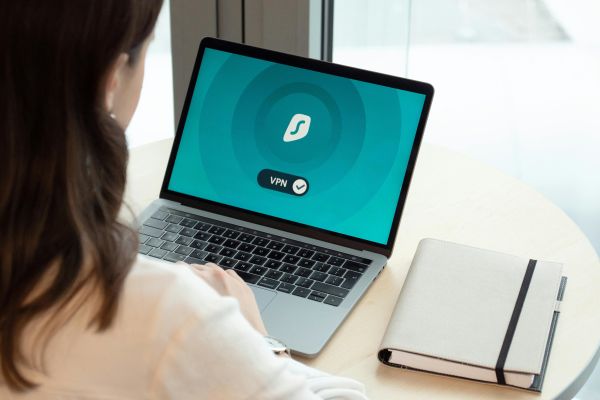In today’s digital landscape, our lives are intertwined with technology like never before. We share personal information, engage in online shopping, and connect with others at the click of a button. While this convenience is fantastic, it also comes with risks that can compromise our cybersecurity and privacy. With cyber threats lurking around every corner, safeguarding your online presence has become more crucial than ever.
But don’t worry—protecting yourself doesn’t have to be complicated or overwhelming. By following some essential tips for cybersecurity and privacy, you can fortify your defenses against potential breaches. Let’s dive into ten fundamental strategies that will help keep your sensitive data safe as you navigate the vast online world!
10 Essential Cybersecurity Tips to Protect Your Online Privacy
Ensuring your online privacy is vital in today’s tech-driven world. Cybersecurity threats are everywhere, and a proactive approach can make all the difference. Simple changes in your habits can enhance your protection significantly.
Start with strong passwords that mix letters, numbers, and symbols. Using unique passwords for different accounts prevents a single breach from exposing everything you own.
Multi-factor authentication adds another layer of security by requiring additional verification steps when logging in. Together, these strategies form an essential foundation for safeguarding your digital identity against prying eyes and malicious attacks.
Cybersecurity and Privacy
Cybersecurity and privacy are intertwined in today’s digital landscape. As we increasingly rely on technology, protecting our personal information becomes paramount. Cyber threats evolve constantly, making awareness essential.
Privacy is not just about keeping secrets; it’s about having control over your data. When you share information online, you open doors to potential risks. Understanding these risks helps safeguard your identity.
A robust cybersecurity strategy empowers individuals to navigate the internet safely. By adopting best practices, you can enhance your online presence while minimizing vulnerabilities. Prioritizing cybersecurity will enable a more secure and private digital experience for everyone.
Tips for Strong Passwords
Creating strong passwords is a crucial step in enhancing your cybersecurity and privacy. Aim for at least 12 characters, combining upper and lower case letters, numbers, and special symbols. The longer the password, the tougher it is to crack.
Avoid using personal information like birthdays or names. Such details can be easily guessed or found online. Instead, consider passphrases—a series of random words strung together that are memorable yet complex.
Change your passwords regularly and never reuse them across different accounts. Using a password manager can help you keep track of all those unique codes securely without the hassle of memorization.
Multi-Factor Authentication
Multi-Factor Authentication (MFA) adds an extra layer of security to your online accounts. Instead of relying solely on a password, MFA requires two or more verification methods. This could include a text message code, an email confirmation, or even biometric scans like fingerprints.
Using MFA significantly reduces the risk of unauthorized access. Even if someone manages to crack your password, they would still need that additional factor. It’s a simple step that can make all the difference in protecting your data.
Many platforms offer MFA as a feature; enabling it is often just a few clicks away. Don’t underestimate its importance for maintaining cybersecurity and privacy!
Secure Your Devices
Securing your devices is crucial for maintaining your cybersecurity and privacy. Start by setting up strong passwords or passcodes on all devices, including smartphones, tablets, and computers. This simple step can deter unauthorized access.
Next, enable device encryption if it’s available. Encryption scrambles your data so that even if someone gains physical access to your device, they can’t read its contents without the right credentials.
Ensure that you install a reputable antivirus program. Regularly scan for malware and keep an eye out for any suspicious activity on your devices to safeguard against potential threats.
Keep Software Updated
Keeping your software updated is crucial for maintaining cybersecurity and privacy. Software developers frequently release updates to fix vulnerabilities that hackers might exploit. By ignoring these updates, you leave your devices open to potential attacks.
Regularly check for updates on all applications, including operating systems and browsers. Many programs can be set to update automatically, which adds an extra layer of protection without requiring constant attention.
Don’t overlook mobile apps either; they should also receive timely updates. Staying current ensures you benefit from the latest security features designed to keep your personal information safe from prying eyes.
Be Cautious with Personal Information
Sharing personal information online can feel harmless, but it’s crucial to exercise caution. Oversharing on social media or websites makes you vulnerable to identity theft and scams. Always think twice before posting sensitive details.
When filling out online forms, only provide the necessary information. Scammers often use data mining techniques to gather personal insights that can lead to fraud. The less they know about you, the safer your digital life remains.
Be wary of unsolicited requests for your personal info via email or messages. Legitimate organizations rarely ask for such details this way. Protect yourself by verifying sources before sharing anything significant.
Beware of Phishing Attempts
Phishing attempts have become increasingly sophisticated. Cybercriminals often craft emails that mimic trusted sources, tricking you into clicking links or providing personal information. Always scrutinize the sender’s address and look for inconsistencies.
Hover over links before clicking to see their true destination. If something seems off, don’t click. Instead, visit the official website directly through your browser.
Never share sensitive information like passwords or credit card details via email. Legitimate organizations won’t ask for this data in such a manner. Stay vigilant and protect your online privacy from these common threats.
Use Secure Wi-Fi Connections
Using secure Wi-Fi connections is crucial for maintaining your cybersecurity and privacy. Public networks, like those in cafes or airports, can expose your data to hackers lurking nearby. Always be cautious when connecting.
Whenever possible, opt for a Virtual Private Network (VPN). A VPN encrypts your internet traffic, making it harder for anyone to intercept your information. This extra layer of security is invaluable on unsecured networks.
If you must use public Wi-Fi, avoid accessing sensitive accounts such as banking or email. Stick to less critical tasks instead. Staying vigilant helps protect against potential threats while online.
Regularly Backup Your Data
Backing up your data is a vital step in protecting your online privacy. Accidents happen, and files can be lost due to hardware failures or cyberattacks. Regular backups ensure that you won’t lose important information.
Consider using both cloud storage and external hard drives for redundancy. This way, even if one method fails, the other keeps your data safe. Automating backups can save time and eliminate the risk of forgetting.
Always verify that your backup process works correctly by performing regular checks. Knowing you have secure copies of essential files provides peace of mind in an increasingly uncertain digital world.
Stay Informed and Educated
Staying informed and educated is crucial in the ever-evolving landscape of cybersecurity and privacy. Regularly read articles, attend workshops, or follow reputable cybersecurity blogs. Knowledge about new threats and trends can empower you to make better decisions for your online safety. Consider subscribing to newsletters that focus on digital security updates. By keeping yourself updated, you’re not just protecting yourself; you’re also contributing to a safer online community for everyone. Remember, awareness is your first line of defense against cyber threats.

